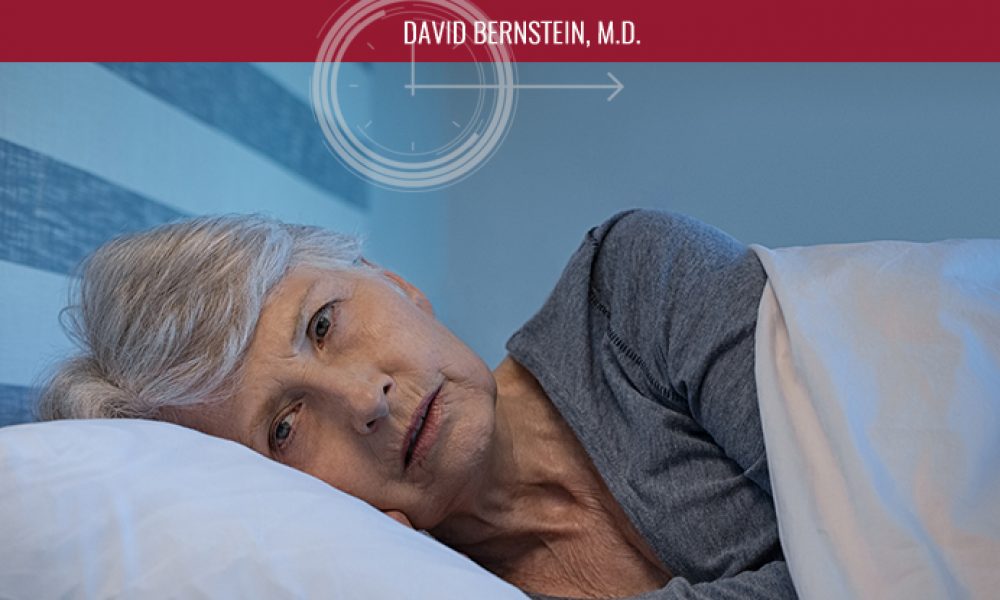As I continuing the discussion on sleep, let’s take a more in depth look at the two most common sleep disorders: insomnia and sleep apnea. Here are the facts…
What Causes Insomnia?
Insomnia can be caused by psychiatric and medical conditions, unhealthy sleep habits, specific substances, and/or certain biological factors. Researchers have begun to think about insomnia as a problem where your brain is unable to stop being awake. Your brain has a sleep cycle and a wake cycle. When one is turned on the other is turned off. Insomnia can be a problem with either part of this cycle; there may be too much wake drive or too little sleep drive.
Medical Causes of Insomnia
There are many medical conditions that can lead to insomnia. Here are some of them:
- Nasal/sinus allergies
- Gastrointestinal problems, such as acid reflux
- Endocrine problems, such as an overactive thyroid
- Arthritis
- Asthma
- Neurological conditions, such as Parkinson’s disease
- Chronic pain
- Low back pain
Medications like those taken for the common cold and nasal allergies, high blood pressure, heart disease, thyroid disease, birth control, asthma, and depression can also cause insomnia.
Additionally, insomnia may be a symptom of underlying sleep disorders. For example, restless leg syndrome, a neurological condition in which a person has an uncomfortable sensation of needing to move his or her legs, may contribute to insomnia. An estimated ten percent of the population has restless leg syndrome.
Sleep Apnea
Sleep apnea is another sleep disorder linked to insomnia. With sleep apnea a person’s airway becomes partially or completely obstructed during sleep. This leads to pauses in breathing and a drop in oxygen levels. This causes a person to wake up briefly and repeatedly throughout the night. People with sleep apnea sometimes report experiencing insomnia. I find that it has such an insidious onset that most of my patients are totally unaware they have this condition.
Depression
Insomnia can be caused by psychiatric conditions such as depression. Sleep problems may represent a symptom of depression, and the risk of severe insomnia is much higher in patients with major depressive disorder. Studies have also shown that insomnia can trigger or worsen depression.
Anxiety
Most adults have had some trouble sleeping because they feel worried or nervous, but for some it’s a pattern that interferes with sleep on a regular basis. Some common symptoms which can understandably lead to insomnia include:
- Tension
- Getting caught up in thoughts about past events
- Excessive worrying about future events
- Feeling overwhelmed by responsibilities
- A general feeling of being revved up or overstimulated
Lifestyle
Insomnia can be triggered or perpetuated by your behaviors and sleep patterns. Here are some examples of how specific lifestyles and sleep habits can lead to insomnia:
- Working from home in the evenings
- Taking naps (even if they are short) in the afternoon; short naps can be helpful for some people, but for others naps make it difficult to fall asleep at night
- Sleeping in later to make up for lost sleep
I have presented compelling reasons why it’s important to address insomnia instead of letting it become the norm. If lifestyle and unhealthy sleep habits are the cause of insomnia, there are sleep hygiene tips that can help. In some cases, there are simple steps that can be taken to improve sleep (such as avoiding bright lighting while winding down and trying to limit exposure to distractions, such as a TV, computer or pets).
If you have tried to change your sleep behaviors and it hasn’t worked, it’s important to take this seriously. It’s a good idea to review your health and think about whether any underlying medical issues or sleep disorders could be contributing to your sleep problems.
Talk to your doctor or a sleep specialist to figure out a course of action. You should not simply accept poor sleep as a way of life.
Consider the facts related to insomnia and sleep apnea and how these sleep disorders may be affecting your sleep. Part 3 of this series will focus on other personal choices that influence your sleep in addition to a technique called Cognitive Behavioral Therapy (CBT) as a successful path to sleep.
To a Long and Healthy Life,
David Bernstein, MD



